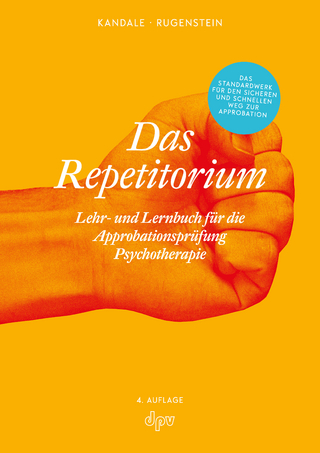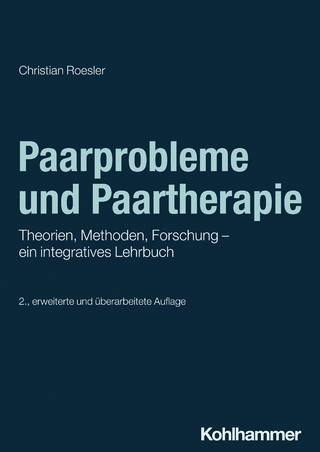Couple Resilience
Springer (Verlag)
978-94-017-9908-9 (ISBN)
Karen Skerrett is a clinical psychologist and affiliate of the Family Institute/Center for Applied Psychological Studies at Northwestern University and adjunct Clinical Associate Professor in the Department of Psychology at Northwestern University. She most recently was an Associate Professor at the University of San Diego, where she designed and implemented their advanced practice program in Psychiatric Mental Health Nursing. She is a long time faculty member at the Chicago Center for Family Health, an affiliate of the University of Chicago. She maintains ties to her dual training as a nurse and a clinical psychologist through a long-term clinical and consulting practice specializing in the treatment of couples and families, particularly those challenged by illness and disability. Her research focuses on resilient processes in couples across the lifespan and strength-based approaches to couple treatment. She is the author (with Jefferson Singer) of Positive couple therapy: Using we-stories to enhance resilience, 2014, Routledge Press and has contributed numerous book chapters and articles to professional journals. She reviews for Family Process and the Journal of Family Nursing, among others. She presents nationally and internationally on adult development, life cycle transitions, innovative approaches to couple treatment and the unique processes of relational resilience and growth in couples across the lifespan. Her work has appeared in the Chicago Tribune, Parents magazine, Psychology Today and the San Diego Union Tribune. Karen Fergus, Ph.D., is a Clinical Psychologist and Associate Professor with the Department of Psychology at York University in Toronto. She holds a cross-appointment as a Clinician-Scientist at the Sunnybrook Health Sciences Centre-Odette Cancer Centre where, in addition to her research activities, she has had a clinical practice since 1998. Karen’s research interests include: couple resilience and couple adjustment to life-threatening illness; differential impacts of cancer across the lifecycle; illness-related loss and grief; and developing and evaluating innovative programs to address these issues. She is the principal investigator for a national trial examining the efficacy of “Couplelinks.ca,” a strengths-based online intervention for young couples facing breast cancer. She has travelled across Canada giving talks and workshops on relationships and cancer to general and professional audiences. Her research has been recognized by the National Council on Family Relations, Anselm Strauss Award (2002) and the Canadian Breast Cancer Foundation, Cause Leadership Award (2013).
Part I. Couple Resilience and We-ness.- Chapter 1. Resilience in Couples: A View of the Landscape; Karen Skerret.- Chapter 2. Theoretical and Methodological Underpinnings of Resilience in Couples: Locating the ''We''; Karen Fergus.- Part II. Resilient Processes and Applications to Specific Populations.- Chapter 3. Resilience in Lesbians and Gay Couples; Arlene Lev-Star.- Chapter 4. Sexual Resilience in Couples; Andrea M. Beck and John W. Robinson.- Chapter 5. Dyadic Adaptation to Chronic Illness: The Importance of Considering Context in Understanding Couples' Resilience; Kristi Gamarel and Tracey Revenson.- Chapter 6. Relationships and the Neurobiology of Resilience; Brent Atkinson.- Part III. Invesitigations into Facets of Couple Resilience.- Chapter 7. Mutuality and the Marital Engagement-Type of Union Scale (Me to Us): Empirical Support for a Clinical Instrument in Couple Therapy; Jefferson Singer, Nicole Alea, Beate Labunko and Jenna Baddeley.- Chapter 8. Identification with the Relationship as Essential to Marital Resilience: Theory, Applications and Evidence; David Reid and Saunia S. Ahmed.- Chapter 9. ''We-Ness'' in Relationship Defining Memories and Marital Satisfaction; Nicole Alea, Jefferson Singer and Beate Labunko.- Chapter 10. Forgiveness: A Route to Healing Emotional Injuries and Building Resiliency; Catalina Woldarsky-Meneses and Leslie Greenberg.- Part IV. Looking Back, Moving Forward.- Chapter 11. Resilient Couple Coping Revisited: Building Relationship Muscle; Karen Fergus and Karen Skerrett.
| Erscheint lt. Verlag | 23.7.2015 |
|---|---|
| Zusatzinfo | 2 Illustrations, color; 3 Illustrations, black and white; XX, 210 p. 5 illus., 2 illus. in color. |
| Verlagsort | Dordrecht |
| Sprache | englisch |
| Maße | 155 x 235 mm |
| Themenwelt | Geisteswissenschaften ► Psychologie ► Familien- / Systemische Therapie |
| Geisteswissenschaften ► Psychologie ► Humanistische Psychotherapien | |
| Medizin / Pharmazie ► Medizinische Fachgebiete ► Psychiatrie / Psychotherapie | |
| Sozialwissenschaften ► Soziologie ► Mikrosoziologie | |
| Schlagworte | Creation of Meaning • Dyadic Coping among Couples with HIV • Dyadic Resilience and Coping • Fostering Couple Resilienece • Gender Studies • Intersubjectivity Theory and Resilience • Marital Satisfaction • Relational Intimacy Model of Sexual Motivation • Relationship-Defining Memories • Relationship Resilience • Resilience in Lesbian and Gay Couples • Self and Experience of 'We-Ness' • Sexual Resilience in Couples • Supporting Relational Positivity • Systemic-Constructivist-Couple-Therapy • The Resilience of Marriage • We-Coping • Well-Being in Couples |
| ISBN-10 | 94-017-9908-3 / 9401799083 |
| ISBN-13 | 978-94-017-9908-9 / 9789401799089 |
| Zustand | Neuware |
| Informationen gemäß Produktsicherheitsverordnung (GPSR) | |
| Haben Sie eine Frage zum Produkt? |
aus dem Bereich




